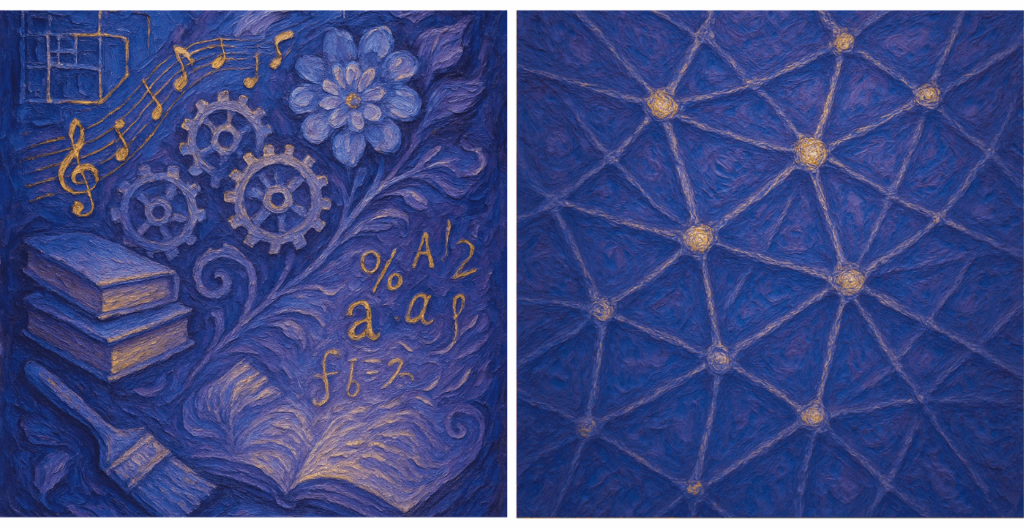
We’ve all been there: staring at a blank page waiting for a stroke of genius, only to feel like everything worth saying has already been said.
This feels like a quintessentially modern experience, but humans have been grappling with this kind of creative anxiety for millennia. Ancient Greek poets prayed to the Muses for divine inspiration, hoping Calliope would visit them with fresh ideas.
Even the Old Testament claims that “what has been will be again, what has been done will be done again; there is nothing new under the sun.”
The issue is that most people think originality means pulling something completely new out of thin air. I call this mythical creativity.
But research shows that the most groundbreaking ideas rarely come from nowhere. Instead, they’re born from remixing, reframing, and recombining what already exists.
This is what scientists call combinational creativity. Whether it’s a hit song like The Beatles blending country, R&B, and Indian music, or a viral app like Instagram combining photo filters with social sharing, much of what we call “genius” creations are really the result of connecting existing dots in surprising ways.
In a very practical way, understanding this difference takes the pressure off and opens the door to creativity that feels both achievable and exciting – and can lead to meaningful impact.
So how can you tap into combinational creativity? The key is shifting from waiting for that mythical “never-been-done-before” idea to actively connecting what already exists in new ways. Experiment with these four strategies:
• Keep an idea bank. Collect interesting quotes, questions, stories, facts, and other seeds of curiosity you come across. A note-taking app or a physical notebook work well. Having an idea bank gives you unlimited raw materials to recombine into original ideas.
• Mix ideas from different fields. Take concepts from one domain (e.g. architecture) and apply them to another (e.g. team design). For example, “What would the Bauhaus architectural principle of form-follows-function look like in team management?” This kind of cross-pollination will increase the actual originality of your ideas.
• Use prompts to generate combinations. Pick two random ideas and ask: How do these differ? How do they overlap? How could they connect? Most attempts will go nowhere. The magic happens in the 10% that surprise you.
• Learn in public. Read outside your field. Talk to people with different perspectives. Share your half-formed ideas, unexpected connections, and early experiments with others. The feedback will help you see combinations you missed and provide more mental lego blocks you work with.
You don’t need to wait for the perfect idea to show up. You already have memories, questions, and seeds of curiosity. Start there and approach creativity not as a divine intervention but as an active conversation with the world.
Tiny Experiment of the Week
Ready to put those ideas into practice? This week’s tiny experiment will help you practice combinational creativity and train your brain to combine unrelated ideas.
I will [combine two ideas everyday] for [5 days]
You could pick a problem you’re working on and combine it with a principle from biology, psychology, or design. Set a timer and allow yourself to play with ideas without judging the outcome. Want to dig deeper? Get your copy of Tiny Experiments.
Until next week, stay curious!
Anne-Laure.
